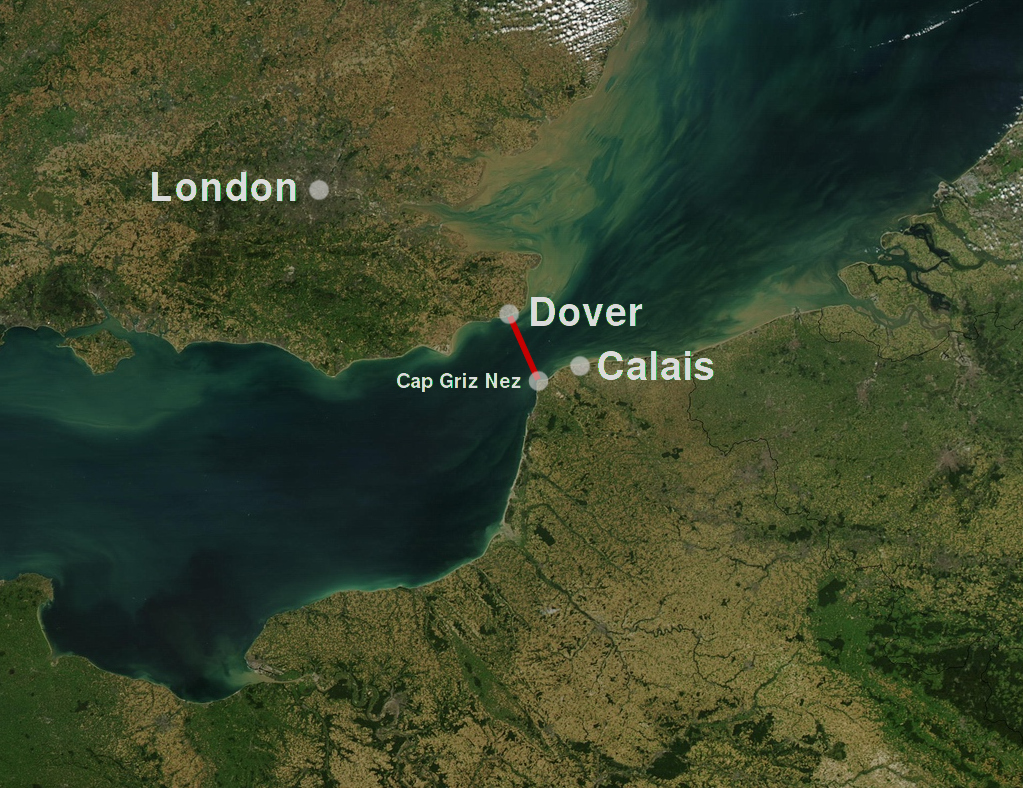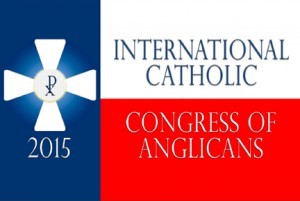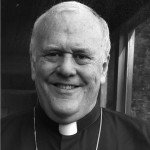GlobalView from Bishop Bill Atwood
In years past, I’ve had the opportunity to teach at four or five seminaries and at a bunch of Diocesan training centers. One occurrence stands out from those experiences. About thirty years ago I was asked to do a course in Practical Theology and Pastoral Ministry. The setting was a class with people who were about to graduate and be ordained deacon. The Dean wanted to assess whether or not the candidates were practically prepared for ministry, especially evangelism, as well as being academically prepared in general. These were third year students in their last term before graduation.
We did some “philosophical” work about ministry, but then set up for a session that would be a role-play. On the day in question, I put a sign up for “St. Cuthbert’s Hospital” (in homage to St. Cuthbert who set up some of the first hospice care). When the students came in, I had cleared off a long table that I had set up as a hospital bed on which I was lying down with blankets and pillows. Each student received a handout as they came through the door into the classroom explaining that they were to treat this as an actual hospital call which they were making the day after being ordained as Deacons.
I will never forget the first student. As he approached, I lay supine, wrapped in blankets. I weakly said, “I’m so glad you’ve come. It may look like a beautiful Spring day, but I’ve just gotten news. The doctors were just in and they told me that I only have a couple weeks to live. What do you have to say to me?”
For a long time, he stood and just looked at me, standing silently at the “bed.” Finally, he said, “Your faith is probably important at a time like this. Next Fall the Rector is having an inquirers class. There will be the opportunity to ask questions then.”
Sighing, I said, “…can I go if I’m dead? Who will take me?”
At that point we stopped the role-play and shifted gears. We spent the remainder of the course working on how to share the Gospel with people. By the time we finished, everyone in the class could actually tell people about Jesus, explain how to enter into a relationship with Him, the role of Baptism and Confirmation, and why the Church as the Body of Christ and it’s Sacraments are central to each person’s relationship with God.
There are lots of ways to do that. Evangelicals are often trained in patterns like the “Roman Road,” that traces through key scriptures in the Book of Romans. Some are trained in Lay Institutes for Evangelism, a ministry of CRU (which used to be called Campus Crusade for Christ). Others have been trained in Evangelism Explosion designed by D. James Kennedy who penned the classic question, “If you were to die tonight, do you have confidence that you would spend eternity with God in heaven?”
Great orators in the Anglican tradition have preached, challenged, and written invitations to commitment to Christ. Names like Festo Kivengere of Uganda, John Stott, Jim Packer, and Michael Green would certainly be people of note in that regard. In our world, a quintessential example of the evangelist in our circle is Archbishop Greg Venables, who presents the Gospel almost constantly and could probably do it while injured, exhausted, or even when almost comatose. Others who may be less well known outside our circles would include people like Bishop Keith Ackerman, Bishop Alberto Morales, Bishop Ray Sutton, and Fr. Larry Bausch of San Diego. All of those, and many others I’m not naming now, have amazing track records of leading people to faith. There are many ways and many methods, but the essential point is that it is critically important for everyone to come to saving faith. Whether in a punctiliar conversion, or in a process over time, the point is that there is no need for people to live without the assurance of a relationship with Christ and the substantive hope of eternal life. Whether using a process of catechesis, a class, conversation, or other methods, the point is sharing Christ with others.
There is only one way of salvation, that is, through faith in Jesus Christ, but there are many ways to share about Him.
You may have heard of the person who accidentally fell down an old abandoned well. After trying all day to get out––and failing–eventually in desperation, they cried out in prayer, “Lord, send someone to save me!”
Immediately a rescuer looked down into the well and offered help. The rescued person was so excited to learn that the Lord answered prayers, they spent the rest of their life pushing people down wells.
Some people from a liturgical background think that evangelism is the purvey of the Baptists. Salvation is not just a Baptist doctrine though, it is a Christian doctrine. What I find is that it is relatively easy to link up and cooperate with others who are sharing the Gospel and bringing others to faith. In contrast, those churchmen and churchwomen who do not believe in the Gospel cannot be partners in ministry, they are actually people who need to receive the Good News.
Anglicans have many stripes and emphases. Some wear splendid vestments while others don’t. Some are traditional in their worship while others use bands and drums and go without shoes. Sadly, no matter the emphases, if their members claim to know a Gospel, but don’t know THE Gospel, they have fallen prey to one of several “false gospels.”
Among those who believe the faith, there should be cooperation in manifesting and extending the Kingdom of God. Whether from an evangelical, charismatic, or Anglo-Catholic perspective, where there is faith in Christ, there is solid ground for cooperation.
The Global Fellowship of Confessing Anglicans (GAFCON) is a global fellowship based on historic Christian faith in the Anglican way. It rests on the authority of Scripture and the other Anglican Formularies––the foundational documents that describe Christian life. The formularies are not meant to nail down every aspect of Christian doctrine. They are meant to be a firm foundation describing Anglicanism. Anglicanism is an interesting animal. In God’s providence, it is an expression of Christian faith that has been tremendously impacted by an “accident” of geography.
In between England and the European Continent lies a body of water called the English Channel. At its narrowest point, it is about twenty some miles across. Some people have even managed to swim the channel. In years past it was passable by ship, but challenging. Now, with air travel and even a tunnel under the sea, it is much easier. Back then, the weather could be treacherous. The water is always cold. (How cold? If you go to a place like the Bahamas, when the weather is so cold the Bahamians are talking about closing the schools, there at the beach you can see stark white English holiday-makers lying on the beach or paddling through the surf. They are used to such cold, they think it is splendid.)
In the years leading up to the Reformation, the choppy, cold water made travel more challenging than moving between, say, France and Belgium. As a result, the problems on the continent did not infect the church in the British Isles anything like the way the continent was impacted.
The English Channel
There are reports that the Christian faith came to British shores as early as the first century. In Shropshire, a Welch king named Caractacus was defeated by the Romans and taken in chains to Rome. He must have been a dazzling speaker because he convinced the Romans to send him back home as a King, but probably as a marionette. His daughter Gladys went along and was eventually joined by her brother, Linus. She was re-named Claudia, and she and Linus became zealous converts. Some say that they were in the household where Paul was held as a prisoner which is why they are mentioned in 2 Tim 4:21. It is reported that Claudia returned to Britain and was very effective in spreading the Gospel, particularly though acts of kindness with the poor, but always, they say, pointing to the benefits from the shed blood of Christ.
So, more than four centuries before Augustine was sent to Canterbury, the seeds of the Gospel were reported to have been planted in Britain. Christian faith in Britain developed with its own Celtic rhythms, but certainly it was genuine Christian faith. Compressing time like a “Back to the Future” feature film, we jump to the time of the reformation. Some practices emerged in the church on the continent that were adulterations of the faith. Things like indulgences were introduced on the continent, but because of the English Channel (among other factors) they never made their way into the English church. When the Reformation began to erupt, the trade lines were stronger with Northern Europe than they were with Southern Europe and the Church in Rome. As a result, the English reformers responded to what was happening with their friends on the continent. The church battled back and forth between Catholic and Protestant emphasis, ultimately emerging as a combination of the two strains. In the spirit of “The English Reformation for Dummies” one might say that the heart of it was, “Cool, preach the Bible more. We can do that!” while the structure of the church was maintained.
The result is a church which has Catholic faith and order (Bishops, Priest, Deacons, and Lay), but Biblical teaching and liturgical services that are rich and historical. In church government, it is neither wholly hierarchical or “bottom up,” but conciliar. That means that Bishops, Priests, Deacons, and lay leaders meet in counsel to discern the direction of the church.
Apart from the Biblical absolutes it holds, the Anglican Church has edges that can be rather fuzzy. (In some areas along the edges, some Provinces are completely lost in fuzz.) On the healthy side, there are Anglicans who are indistinguishable from fire-breathing Bible thumpers, and others who engage liturgy that is far more elegant and elaborate than would be found in Rome. The heart of Anglicanism, though, is Bible-believing and preaching in the midst of the historic faith. There are different streams of emphasis, in which it is very easy for people to float along with the currents of their own tribe and have little contact with those who have other emphases. But those separate streams should not remain alone. This is an age in which faithful people of varying emphases must come together.
I am utterly convinced that GAFCON is essential to carrying Biblical faith into the future, at least it is if we are to preserve the Anglican way. In order to do that properly and faithfully, it must include those orthodox Anglicans from whatever stream they dwell. In GAFCON’s short history (remember it’s only about seven years since the first GAFCON meeting in Jerusalem), there has been a great deal of activity from Nigeria and the East African Revival Provinces, both of which are classically evangelical. They are not the only ones who are zealous for Biblical faith, however. At several of the GAFCON Primates meetings there has been discussion of making sure that there is a welcome to those who are from the Anglo-Catholic Anglican world. All of us who share Biblical faith are going to have to stick together.
Now, a great opportunity has arisen to build up the body and build bridges among the faithful. July 13-17, 2015 there is going to be the International Catholic Congress of Anglicans in Fort Worth. It is being organized by faithful, visionaries who see the need for the historic faith to be carried forward into the future. This is not just a gathering for those who self-identify as Angli-Catholics. It is for all orthodox Anglicans who see the importance of working together. It’s also a great opportunity for evangelical and charismatic Anglicans to see how much we share. In fact, what they will see us that many of us in the realignment drink from all three streams.
Look at this list of Keynote speakers:
Abp. Valentino Mokiwa – Frank Weston/and the Foundations for Revival
Dr. Edith Humphrey – The Nature of the Church: Apostolic, Conciliar, and Concrete
Bp. Keith Ackerman – The Anglo-Catholic Congresses and Restoring the Anglican Mind
Bp. Ray Sutton – Theology of the Real Presence
Bp. Michael Nazir Ali – The Necessity of Unity in Truth for the Church’s Mission
Bp. John Hind – Catholic Anglicans and the Future of Ecumenism
Here is something interesting: Of the six keynote speakers listed above, four are active in GAFCON. Of the celebrants and preachers at the eucharists, the majority are active in GAFCON as well. Anyone with any sense knows that the dividing line is whether or not we are “in Christ,” it is not based on churchmanship, vestments, or expression. Differing areas of theological emphasis should not be dividing us.
I’ll be there speaking about GAFCON and the future along with a vast array of speakers and workshops. We have to learn to work together. We need to learn to value each other. We need to celebrate all the ways that people are being brought to Christ, discipled in His Church, and deployed to extend His Kingdom. The International Catholic Congress of Anglicans is a great opportunity to gather with heroes of the faith and learn something besides. My expectation is that this is going to be a gathering of great strategic importance for the good of God’s Kingdom and the future of Anglicanism. If you are not already planning on being there, let me recommend it. If you are already going, I’ll see you there! There is much for us to do. Together.
For more information click: International Catholic Congress of Anglicans
The Rt. Rev. Bill Atwood is Bishop of the ACNA International Diocese and an American Anglican Council contributing author.





